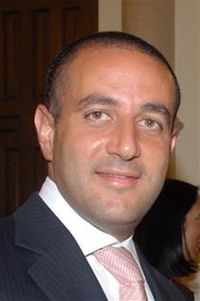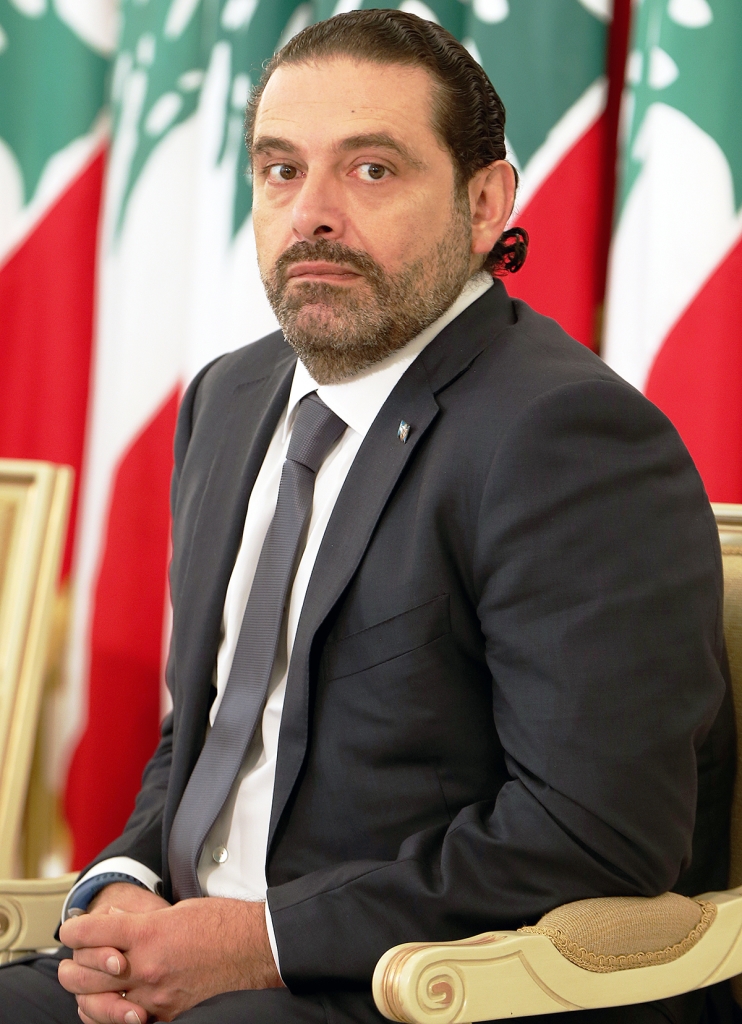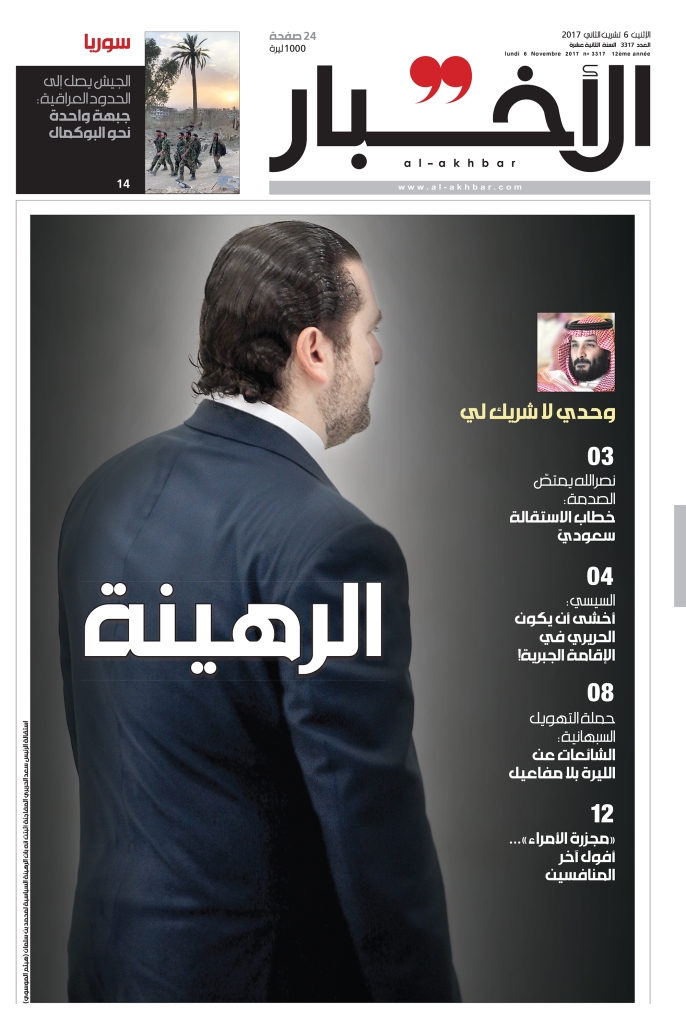The Unpublished Pieces behind Hariri’s Abduction Story in Saudi Arabia
November 9, 2018
One year has already passed since President Saad Hariri was kidnapped and held hostage against his will in Saudi Arabia. Mohammed bin Salman’s move that caused turbulence in the lebanese community was described as “utter foolishness”. The crown prince lured his Lebanese ally and forced him to resign from his post in a speech from the Saudi capital, Riyadh, in a surprise announcement on November 4, 2017, plunging Lebanon into its latest political problems.
The reactions to this move in Lebanon, Arab world and the West have forced the crown- who is colloquially known as MBS- to retreat. Until the present day, detailed information is still unfolding concerning how Hariri, from his “home detention” in Riyadh, and his team in Beirut, has faced the coup attempt that aimed at ending his political career.
Citing several sources, Al-Akhbar Lebanese daily published on Tuesday, Novermber 5 (2018), several articles that revealed details about Hariri’s detention.
Few Days Prior to “Resignation”: Bin Salman Lures Saad Hariri
By the end of October 2017, lebanese Prime Minister Saad Hariri payed a visit to Riyadh where he was welcomed by Saudi crown prince. In that visit, MBS promised Hariri to arrange him a meeting with the Saudi King by the end of the week. Hariri, willing to participate in the World Youth Forum, which was held under the patronage of Egyptian President Abdel Fattah al-Sisi on November 4, 2017, in Sharm el-Sheikh, insisted that the meeting with the Saudi king would be on Saturday.
Hariri returned to Beirut, to his usual agenda which normally involves meetings and receptions. Thursday night, on November 2, he received a call from Bin Salman’s Divan. He was told that “His Highness the Crown Prince wants to spend the weekend with you, and you will go hunting together.” Hariri welcomed the invitation with open arms and confirmed that he’ll be there on November 3.
Hariri in Saudi Arabia
Saad Hariri set foot in Saudi Arabia by the early evening of November 3, as he promised. As always, a saudi royal parade has welcomed the prime minister and took him home. However, what was unsual is that Hariri was summoned at 8:30 a.m. to the Saudi royal office, unseemly early, by the kingdom’s standards, in the second day of a visit that was already far from what he had expected. Mr. Hariri dressed that morning in jeans and a T-shirt, thinking he was going camping in the desert with the crown prince. There was no customary royal convoy, so Mr. Hariri took his own car. And instead of meeting the prince, officials said, he was manhandled by Saudi officials.
As Saad Hariri arrived at Bin Salman’s palace, his security team, which was treated rudely and firmly, wasn’t allowed to escort him to where they were normally allowed into. Few minutes later, Hariri’s driver was asked to go home and bring him a “suit”. Shortly after the driver’s return, Saad Hariri announced live on Al-Arabiya satellite television that he had resigned as Lebanese prime minister.
Hariri was handed a resignation speech to read, which he did at 2:30 p.m. from a room an official said was down the hall from the prince’s office. The text blamed Hezbollah and claimed his life was in danger; it used words that don’t match with his rhetoric. This, it seemed, was the real reason he had been beckoned to the Saudi capital: to resign under pressure and publicly blame Iran, as if he were an employee and not a sovereign leader.
The Aftermath of the Announcement
Few minutes after Saad Hariri announced his resignation, Rudeina Al-Arab, the wife of hariri’s head of security team Abdul Karim Al-Arab, gave General Security Chief, Major General Abbas Ibrahim a phone call. She burst into tears while saying that her husband was kidnapped. Her conclusion was based on a phone call she made with her husband upon hearing the prime minister’s speech. As she was talking to her husband, she could hear people yelling and shouting at him. Excessive noise was coming out of the phone. Al-Arab soon hang up the call and promised to call few minutes later; yet, he never did.
Rudeina al-Arab’s phone call was an ample proof that what happened in Saudi Arabia on that crazy day was neither normal nor coincidential.
In Baabda, President Michel Aoun chose to follow a wait-and-see approach. He performed a series of security-related phone calls. He asked Departments of General Security, Internal Security and the Lebanese army if they had any information about a secret plot,which was promoted by Saudi media, to assasinate Saad Hariri. All the mentioned security services denied the news and were asked to make public pronouncements to this effect. In person, Aoun called Imad Othman, Director-General of Internal Security Forces, more than once to make sure that he had no information regarding the alleged assassination plot.
The lebanese president insisted that the Internal Security must develop a common position regarding the Saudi allegations, given the department’s strong links to both Saudi Arabia and Saad Hariri. Internal Security Forces immediately denied the Saudi allegations, saying that they had no knowledge of an assassination attempt.
Hariri’s Wife Confirms Abduction
Lara Al Azem, Saad Hariri’s wife, who lives in Riyadh, informed her family in Beirut that “Sheikh Saad” was held hostage at the Ritz-Carlton complex in Saudi Arabia, in an annexed villa of the hotel. She also added that MBS’s men allowed her to visit her husband twice.
Lara’s assertions were obviously the preliminary confirmation that the prime minister was abducted against his will. These assertions weren’t available to the public, but to a limited number including: Head of PM Hariri’s office, Nader Hariri, Interior Minister, Nohad Machnouk and Hariri’s adviser, Hani Hammoud.
Wadi Abu Jamil Coordination Unit
A coordination unit to follow up the crisis has been set up in the prime minister’s house located in Wadi Abu Jamil, in Beirut’s Downtown. The unit encompassed Nader Hariri, who is also the cousin of the PM, Hani Hammoud, Major General Imad Othman and Colonel Khaled Hammoud. To expedite the whole process, the unit also involved Culture Minister Ghattas Khoury, Interior Minister Nohad Machnouk and former MP Bassem Al Sabaa.
The unit operated on two parallel internal and external levels. Internally, the unit was reassured by the position of Aoun, Speaker Nabih Berri and Hezbollah. Lebanon’s President, Michel Aoun, a Hezbollah ally, who refused to accept the resignation unless Mr. Hariri delivered it in person, addressed the crisis as a personal matter. As for Berri, he reaffirmed his stand alongside the lebanese PM “whether hanging on the cross or banging in the nails.”
Meanwhile, Hezbollah believed since the beginning that MBS, the young ambitious heir, was determined to shake up Lebanon’s power structure and set the entire country on edge.
Externally, seeking international and regional asssistance, Machnouk headed, secretly, to Cairo where he met state department and intelligence officials. He did not need to explain to them what was going on for the Egyptian officials were fully aware that Hariri was kidnapped and subjected to “house arrest”.
Seeking International Assistance
Foreign Minister Gebran Basil had a central role to play in mobilizing support from decision-making countries to help release the imprisoned prime minister. As for General Security Chief, Major General Abbas Ibrahim, he activated the intelligence services in different countries. In France, Bernard Emié (former French ambassador to Lebanon) was the director of Foreign Intelligence Service. In Germany, Ibrahim called for an urgent meeting with the director of intelligence, but the latter was outside the country, so he sent him the German ambassador in Beirut. Ibrahim explained the circumstances of the prime minister’s “resignation” and shared with him some information in his possession.
In Beirut, the US Ambassador to Lebanon, Elizabeth Richard, was still confused. At first, her stance was quite negative. In the early hours following Hariri’s resignation, when asked about her opinion regarding what was going on, she said that Hariri “had resigned in public. What are we supposed to do?” However, after a series of communication channels and after providing the State Department and US intelligence with thorough and accurate information, Washington’s attitude changed.
As in many other cases (since Donald Trump came to power), there has been a split between the Deep State and the National Security, on one hand, and the White House on the other. Trump backed Bin Salman’s coup against his cousins in Riyadh. He did not take a decisive position from Hariri’s capture at first. But the “national security state” in Washington stood up for Bin Salman’s willigness to exclude Saad Hariri.
Hariri’s Tour
Both Emirati Crown Prince of Abu Dhabi, Sheikh Mohammed bin Zayed and Abdel Fattah Al Sisi, viewed Bin Salman’s move with suspicion. When the Saudi Crown Prince decided that detained Hariri would visit a number of Arab countries, in a bid to prove that the Lebanese PM is “free”, Cairo said that it would not host the Lebanese prime minister unless he departs from Cairo to Beirut. That made Bin Salman limit Hariri’s tour to Gulf states.
On November 7, Sheikh Mohammed bin Zayed, who is also the Deputy Supreme Commander of the UAE Armed Forces and known as MBZ, met with the Lebanese prime minister in Abu Dhabi where they discussed “brotherly relations and the recent developments in Lebanon.”
The visit aimed at humiliating Hariri by forcing him to go to Abu Dhabi, whose governor had decided to boycott Hariri for a while, for political reasons and financial differences between them. However, contrary to what Bin Salman wanted, bin Zayed was friendly with Hariri and reassured him that his ordeal would soon end.
Bold Moves
Saudi Arabia’s Arab Gulf Affairs Minister, Thamer al-Sabhan’s team contacted all Hariri’s family members, except Nader, and asked them to come to Riyadh to pledge allegiance to Bahaa, Saad Hariri’s brother, as the leader of the family and the Sunni Muslim sect. All of Hariri’s family showed their loyalty and commitment to their leader. Even his younger brother, Fahd, who was not in accord with Saad, rejected the Saudi “supreme order” and expressed discomfort with that bold move. Within 48 hours, Saudi Arabia received the following unanimous message from the entire family: Saad has no alternative. The latter played a key role in thwarting this “conspiracy,” through his secret contacts with his team in Beirut. After visiting Abu Dhabi, Hariri eventually moved from the Ritz to his home, where he remained under house arrest. Within days, several Western ambassadors visited him there. They came away with conflicting impressions of how free he was. There were two Saudi guards in the room, officials said, and when the diplomats asked if the guards could leave, Mr. Hariri said no, they could stay. Intense diplomacy followed by France, the United States, Egypt and other countries, producing a deal that allowed Mr. Hariri to leave Saudi Arabia.
وقائع غير منشورة من قصة اختطاف سعد الحريري في السعودية
حسن عليق
اللواء ابراهيم تلقى الإشارة الأولى إلى كون الحريري معتقلا
بعد دقائق على اعلان الرئيس سعد الحريري استقالته من رئاسة الحكومة، يوم 4 تشرين الثاني 2017، في خطاب متلفز من الرياض، تلقّى المدير العام للامن العام اللواء عباس ابراهيم اتصالاً من ردينة العرب، زوجة عبدالكريم العرب، مسؤول فريق حماية الحريري. كانت تبكي قائلة: خطفوا زوجي. استفسر ابراهيم منها عما تقوله، فأخبرته انها، وفور مشاهدتها خطاب رئيس الحكومة، اتصلت بزوجها الذي كان يرافقه. رد عليها، ولم يكن على علم بما يجري. ثم سمعت صراخاً بقربه، وأشخاصاً يتحدّثون معه بعدائية. قطع العرب الاتصال قائلا لزوجته انه سيحادثها بعد دقائق. حاولت الاتصال به مجدداً، لكنها لم تفلح. الصراخ الذي سمعته جعلها تقتنع بأن الذين يصرخون كانوا يريدون توقيف زوجها او اختطافه.
اتصال ردينة العرب كان الاشارة الاولى على حقيقة ما جرى في الرياض، في ذلك اليوم المجنون. نادر الحريري، مدير مكتب رئيس الحكومة، كان يضع اللمسات الاخيرة على جدول أعمال الزيارة التي سيقوم بها رئيس الحكومة في اليوم التالي الى شرم الشيخ، للمشاركة في مؤتمر والاجتماع بالرئيس المصري عبدالفتاح السيسي. الرجل الاقرب (في ذلك الحين) الى سعد الحريري، صُدم باعلان الأخير استقالته. بعد وقت ليس ببعيد، اتصل به هاتفيا. كرر رئيس الحكومة على مسامع مدير مكتبه، بنبرة لا تخلو من «الرسمية»، ما قاله في بيان الاستقالة عن إيران وحزب الله. اللغة التي استخدمها لم تكن معتادة بين الرجلين. تيقّن نادر من أن ابن خاله لم يكن في وضع طبيعي، فختم الاتصال بعبارة «الله يحميك».
خمسة أيام قبل «الاستقالة»: ابن سلمان يستدرج الحريري



















No comments:
Post a Comment